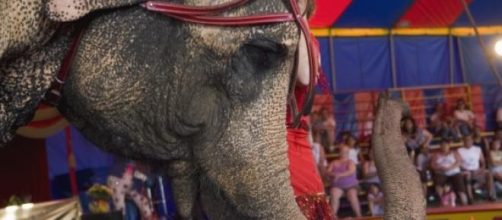A new proposed law that would ban the use of wild animals in circuses was blocked for the 12th and final time on Friday, by three Tory MPs. The bill had the personal of support of the Prime-Minister David Cameron, the government, Labour, all other parties in Parliament and 94% of the British public but the trio of backbenchers blocked any discussion on the matter by filing objections against it 12 different times, since the proposed law was first introduced in September last year.
The bill was introduced by former environment minister and current Labour MP Jim Fitzpatrick that blamed Conservative MPs Andrew Rosindell, Phillip Davies and Christopher Chope, for preventing Britain from ”joining the 21st century”.
Andrew Rosindell MP explained that he believes the circus is a “great British institution” and that it would be cruel to remove the animals “from the environment they are accustomed to.”
This latest objection filed by Conservative MP Andrew Rosindell, on Friday, means that the bill has now effectively “failed” because there will be no more opportunities to discuss the proposed ban
Although more than 200 local British authorities have already banned the use of wild animals in circuses, the United Kingdom remains one of the few European countries without a nation-wide ban on the use of wild animals in circuses.
Greece, Cyprus,

